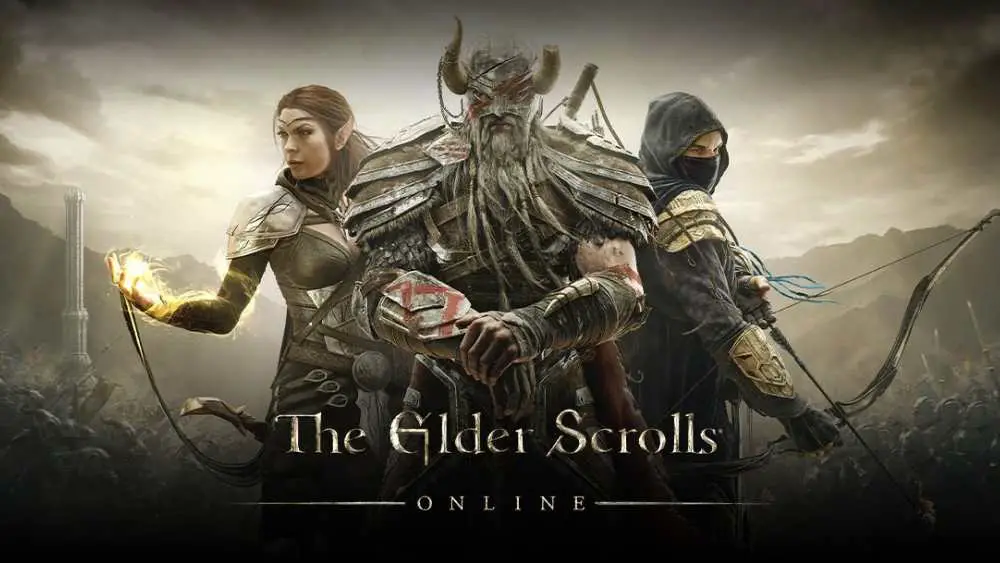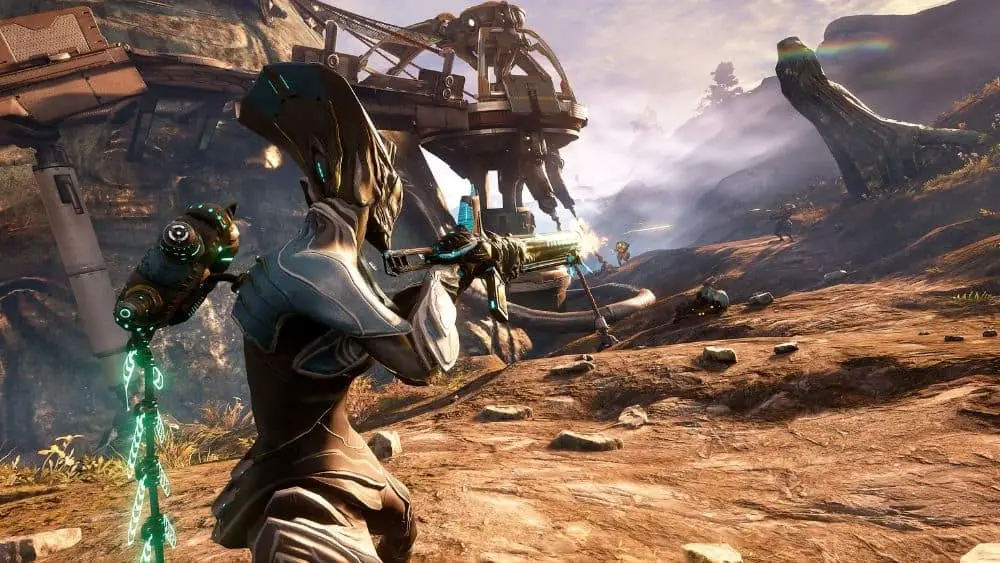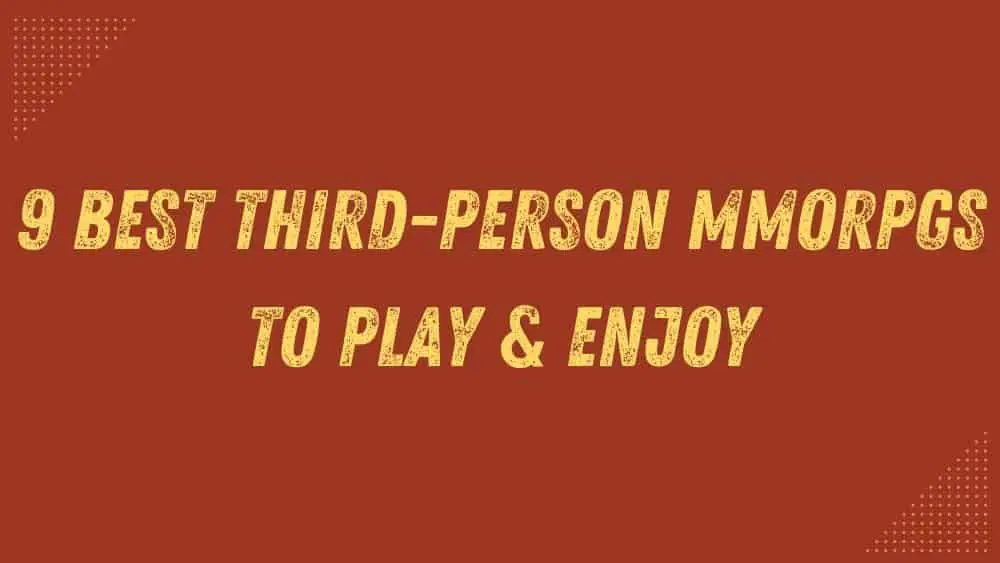I have always believed that the perspective a game chooses to play in can dictate the content of the game and the visual detailing it offers. Take, for example, Age of Empires, a 2D title with a top-down perspective. The game offers 39 unique civilizations, each with types of army units and buildings so forth.
All these units have a cosmetic identity unique to them. While the buildings and units appear very detailed from a distance, one cannot argue they could be as detailed as NPCs in a third-person MMORPG, where the NPCs are more likely to be a copy-paste of each other.
There’s a level of immersion that third-person and first-person perspectives offer that wildly differ from each other as well. For example, a game is more likely to have a silent protagonist if it’s a first-person title, Gordon Freeman, Doomslayer, Corvo (In the first entry at least).
While third-person games focus more on telling a story, and the players are along for the ride, like Max Payne or The Last of Us. Of course, there are always exceptions; it’s not a hard and fast rule; I am generalizing.
I don’t want any confusion; I don’t intend on saying games that aren’t 3D or don’t have a particular perspective are unable to have the same immersion, but they offer their details in different ways.
Anyway, I feel like I am rambling. Let’s get to the meat and potatoes. Here are the 9 best third-person MMORPGs for you to play and enjoy.
1. Blade & Soul

Some MMORPG veterans might call this one of the best third-person combat experiences in the MMORPG genre, and rightfully so.
Blade & Souls offer a combination of two distinct, authentic fight forms-martial arts and qigong and rewards players for successfully hitting their attacks consecutively, leading to a combo.
Of course, being a Korean MMORPG, Blade & Soul offers competitive PvP events that can be very challenging. The visuals of the game are striking, especially for a title released in 2012.
The game was developed by NCsoft and released in 2012, and in 2018, Blade & Soul Revolution was released for mobiles. So if you’re looking for polished MMORPG experience with combat like none other, this one’s a no-brainer.
2. Vindictus

Vindictus is another Korean MMORPG developed by devCAT and released in 2010. Interestingly, it is a prequel to a classic MMORPG Mabinogi; however, the gameplay is wildly differing, with Vindictus offering less flexibility instead, focusing on being a more linear experience.
Instead of picking a race and class like most MMORPGs, players are given an option to choose from seventeen unique characters. Each has a unique combination of stats and access to varying skills and abilities.
That’s not to say that players cannot customize their avatar, but for the most part, they don’t quite have the same flexibility of choosing their playstyle as other MMORPGs.
3. Dragon Nest

Dragon Nest is an MMORPG developed by Eyedentity Games and released in 2010. The game has aesthetics that remind me of Fable, and while the story is linear, the way it plays out depends on the character’s class.
The gameplay is quite similar to other MMORPGs where players must explore the world and talk to NPCs for quests acquiring loot, experience and bonus for finishing the quest.
However, it differs from other titles because it features entirely skill-based combat, allowing low-geared players to defeat fully kitted out players in PvP.
Of course, don’t go to the game thinking your first match will be a victory though; you still have to learn the game.
4. Black Desert Online

Black Desert Online is a third-person MMORPG developed by Peral Abyss and released in 2019. Like Blade & Soul, Black Desert Online also features a mobile spin-off. The game essentially takes the action of a third-person shooter and fuses it with the social activities of a standard MMORPG.
The game features fluid movement and combat with a high-skill ceiling while also offering various activities like housing, fishing, trading etc. The action requires precise aiming and using mechanics like dodging and combos.
Unlike other MMORPGs that provide a standard mana bar to limit players from performing skills, BDO encourages players to pull combos to use their skills in battle. The best defense is a good offence kind of deal.
5. The Elder Scrolls Online

The Elder Scrolls is a legendary status franchise. From Morrowind to Skyrim, I have explored the fantastical land so much I practically know the maps by memory (don’t quote me on that, though).
The Elder Scrolls Online is an MMORPG set in the same world-Tamriel, developed by ZeniMax Online Studios and released in 2014.
While initially, the release was a bit rocky, the developers were quick to act on the criticism and what we have today is a polished experience and, dare I say, it’s not a half-bad experience.
The game boasts 2.5 million monthly active users, so it’s a friendly experience alright, but over that, the game offers Tamriel in all its glory, featuring perhaps the most extensive map in The Elder Scrolls games (disregarding the first one, of course).
If you’re a fan of the series or want a more stable/less grindy experience in general, The Elder Scrolls Online is a no-brainer.
6. Darkfall

Darkfall is a tale of a great idea surviving because of a loyal community. The game has had three MMORPG entries so far, all developed by different companies altogether.
The original Darkfall Online was released in 2009, and its service concluded in 2012. Darkfall: Rise of Agon and Darkfall: New Dawn were released in 2017 and 2018, respectively.
The game ditches the traditional levelling-up in MMORPG, instead focusing more on a skill-based system where the character’s proficiency dictates their ability to perform a specific action (kind of like older Fallouts, if you don’t have enough points in energy weapons, they are pretty useless).
Along with that, the game offers more basic mechanics like resource gathering, crafting etc. and PVP mechanics to go with; it’s a fun game overall if you can find a decent enough server to play in.
7. Kritika Online/Kritika:REBOOT

Kritika Online is another story of a game that wasn’t well-received on release but made a turnaround some time in its lifespan to garner attention and win players back.
Similar to Blade & Soul, Kritika:REBOOT features Devil May Cry-esque action sequences with vibrant flashing colors and no stamina bar to hold the player back.
It allows players to break all hell as they chain their combos, and once the mechanics are understood, a seasoned player can solo clear a hard dungeon.
There are drawbacks, though: there are pay-to-win elements in the game (like any free MMORPG), and classes are gender locked; this might be a deal-breaker for some players, so just putting it out there.
8. Warframe

Warframe is another free-to-play MMORPG developed by Digital Extremes and released in 2013.
The game plays like a AAA third-person shooter of its era, featuring elements of RPG and stealth. This allows the game to have various playstyles for players to use, but it essentially plays itself as a PvE experience with quests that play out linearly and their performance awards players.
The best part is that the game has next to no pay-to-win elements, and while progress can be made more accessible by using microtransactions, the game is largely “grindable”.
9. Tom Clancy’s The Division

Tom Clancy’s The Division is an MMORPG developed by Ubisoft and released in 2016. The game also has a sequel, The Division 2, with the same core gameplay loop with a more extensive world and content.
Both games offer a similar gameplay style, with co-op team-based being the primary way of playing and featuring PvP modes.
This game caught my attention with its story and the message it sends of people being blissfully ignorant till the problem shows up on their door, a surprisingly heavy narrative for an action game.
But then again, Ubisoft doesn’t shy away from a strong story; it’s just that they don’t do it that often.
I have previously expressed disappointment in Ubisoft’s handling of the Tom Clancy name. Still, regardless, The Division is a polished experience that won’t disappoint you if you’re looking for a competent third-person MMORPG.
The core gameplay loop comprises acquiring and completing quests to gain currency and experience, allowing players to level up and purchase weapons of varying levels (standard gear, legendary gear, etc.). It’s fun to play with friends, but the Ubisoft open-world mantra does wear on you after some time.
Conclusion
Without a doubt, third-person is my favourite way to enjoy a game that focuses on linear story, but if the game has varying routes, I prefer the first-person.
As I said before, there’s no hard and fast rule, but I always play Skyrim in the first person; it just feels natural. Anyhow, the games listed above should be more than able to quench your third-person thirst for MMORPGs.
I have tried to feature games that don’t offer pay-to-win, but it’s not entirely avoidable because of the nature of free-to-play models.

